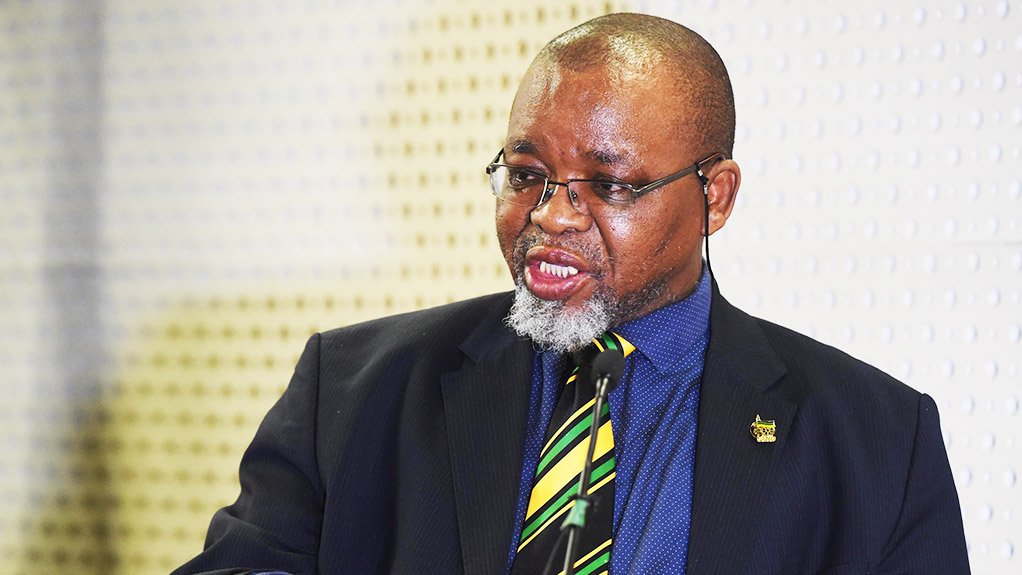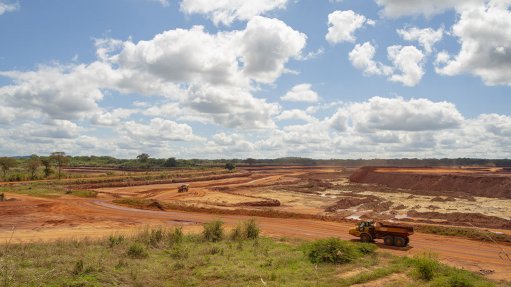Charter in current form will not promote investment, growth – MCSA
JOHANNESBURG (miningweekly.com) – The Minerals Council South Africa (MCSA) believes that while the draft Mining Charter 2018 is a material improvement on the 2017 iteration, much more work needs to be done to create a Mining Charter that promotes competitiveness, investment, growth and transformation for the growth and prosperity of South Africa.
Investment banking company Renaissance Capital adds that the latest draft Mining Charter could erode the competitiveness of South African mining and that it will likely continue the trend of disinvestment, while other mining countries continue to benefit from investment that could have contributed to growing the South African economy.
This follows the publication of the draft Mining Charter 2018 by the Department of Mineral Resources (DMR) on June 15.
Interested parties have 30 days to submit responses to the draft.
While the MCSA supports a 30% black ownership target on new mining rights, with shares allocated for communities, organised labour and black entrepreneurs, it does not support some of the elements of the new draft charter.
Although the 30% black ownership target of the 2017 charter is retained, existing rightholders are afforded a period of five years, rather than one, in which to meet this target, Herbert Smith Freehills co-chair and partner Peter Leon commented in a separate statement.
“Importantly, the continuing consequences of historical black economic empowerment transactions will be recognised and, although it is open to interpretation, it appears that existing rightholders will be protected in circumstances where they met but subsequently fell below the 26% ownership requirement, of the 2017 charter, on the exit of their black shareholders,” he added.
Meanwhile, the MCSA argued that some of the elements of the charter do not promote competitiveness, without which, investment in new exploration and mining will be limited and the current mining sector will continue to decline.
This, the council explained on Monday, is directly contrary to President Cyril Ramaphosa’s stated intention of attracting $100-billion in new investment into South Africa in the next five years.
While many of the new draft charter’s provisions remain problematic and are unlikely to result in much-needed investment in the already embattled South African mining sector, Leon said Mineral Resource Minister Gwede Mantashe’s draft of the charter is an improvement on its predecessor.
The draft charter appears to make a significant change in relation to the ownership element of existing rights, Leon noted.
However, he lamented that the holders of new mining rights will not be so fortunate.
The composition of the 30% black shareholding remains unchanged from the 2017 charter – 8% to qualifying employees, 8% to host communities and 14% to black economic empowerment (BEE) entrepreneurs.
“A new requirement, however, is that at least 60% of the shares owned by host communities and qualifying employees must be on a nontransferable free carried basis. This is likely to render marginal mining projects uneconomic and is a significant cost to shareholders.
“Although the requirement to pay 1% of turnover to black shareholders is removed from the current draft, mining companies will now, regardless of any economic considerations, be required to pay a trickle dividend of 1% of earnings before interest, taxes, depreciation and amortisation (Ebitda) in circumstances where a dividend in not declared in any 12-month period,” Leon explained.
Renaissance highlighted that, according to the new draft charter, ‘once empowered, always empowered’ holds for ownership transactions at existing mining rights, while the requirement to contribute skills development levies to the contentious Mining Transformation and Development Agency has fallen away.
However, Renaissance averred that goalposts continue to move with the cost of doing business increasing, especially for new mining rights.
“Our key concerns in the updated draft is the requirement for a 10% ownership free-carry for communities and employees at new mining rights, as well as what appears to be impractical procurement targets,” the banker said.
Further, Renaissance, in its sector report on Monday, added that another key concern is that the percentage of mining goods that must be procured from South African manufacturers has increased to 70%, from the previous 30%, while foreign suppliers must contribute a minimum of 0.5% turnover towards the development of suppliers.
The MCSA also does not support the free carried interest of 5% allocated to each of labour and communities.
Given South Africa’s mature mining sector, the council said a 10% total free carried interest on new mining rights will materially undermine investment, by increasing investment hurdle rates and ensuring that many potentially new projects become unviable.
“The imposition of a free carried interest is a public policy choice, which must be weighed against the critical need to attract investment for growth and employment creation,” the council said.
The MCSA believes that there are other measures to ensure benefits to communities and employees that would not undermine the viability of mining in the future. The council will continue to engage with the DMR on such potential measures.
The 1% Ebitda target to communities and labour proposed by the DMR was rejected by the MCSA, saying it is a “surprise addition”.
Further, the council pointed out that the issue of topping up existing rightholders’ BEE ownership to 30% within five years was never agreed as a recommendation by the Charter Task Team, which the council said is another surprise inclusion by the DMR.
This top-up, it argued, prejudices existing rightholders that secured their rights on the basis of the 2004 and 2010 charters. The MCSA will, therefore, not support the top-up, it said.
“Despite a High Court declaratory order judgment and an agreement with the DMR, the issue of recognising the continuing consequences of previous BEE deals on existing rights, including for renewables, has not been properly captured in the Mining Charter,” the MCSA said.
Renaissance, however, cited the increase to 30% ownership as a changing goalpost in the proposed 2018 Mining Charter.
The MCSA further highlighted that the Mining Charter should involve all stakeholders in growing competitiveness, investment and transformation in the sector.
Renaissance cited similar concerns, adding that it believes the terms of the new charter could starve the country of much-needed capital, especially for new projects, to sustain current levels of employment.
“To achieve sustainable value generation in mining, we believe all stakeholders should work together to attract capital and boost productivity to grow value for all stakeholders, rather than fight over a shrinking pie, but history suggests this is difficult to achieve,” the company said.
Further, mining companies in new rights applications carrying a 10% free-carried interest and an Ebitda-based income stream for communities and labour, comes in addition to the industry’s social and labour plan requirements, skills development requirements, which amount to about R7-billion a year, and the existing royalties of about R6-billion a year, and corporate taxes.
The lack of recognition of the need to phase-in or graduate the charter’s requirements for junior and emerging mining companies is disappointing, the MCSA lamented.
“While the MCSA supports transformation of all elements of the exploration and mining value chain, the application of a 30% black ownership target to new greenfield prospecting rights will result in a continuation of limited exploration, the lifeblood of new projects for the industry”.
The council did, however, state that it will continue to engage with the DMR and other stakeholders and that it will make a comprehensive submission to the DMR on the key issues that it believes need to be changed or resolved in order to achieve competitiveness, growth and transformation.
The MCSA urged other stakeholders to take on board the significant need to improve the competitiveness of the industry to ensure investment, growth and the transformation of the mining sector.
Leon, meanwhile, noted that the draft charter has finally elaborated on the permitted beneficiation offset of up to 11% against black ownership, a concept which was carried through all previous versions of the Mining Charter but never implemented by the DMR as it lacked a mechanism for its application.
“The new provision permits a mining company to claim the equity equivalent of a maximum of 11% against a portion of its black entrepreneur shareholding based on certain listed beneficiation activities. That said, it remains to be seen how the actual offset entitlement will be calculated,” he explained.
The significant increases in the local procurement of mining goods and services targets contained in the 2017 charter have remained largely unchanged and do not appear to comply with South Africa's international trade law obligations as they continue to discriminate against foreign suppliers of goods and services, Leon commented.
Similarly, he said, there has been little reprieve for mining companies under the employment equity targets at board and executive management level, with both still requiring 50% black participation.
The targets for senior, middle and junior management have been lowered marginally.
In what appears to have been more of an afterthought, Leon noted that junior mining companies will be afforded the ability to make representations to the Minister for a much-needed reprieve from some of the provisions of the charter.
“However, as the provision is vague, any reprieve will ultimately be subject to the Minister's discretion,” Leon said.
Law firm Webber Wentzel, meanwhile, highlighted that there is little to no emphasis on sustainable development and environmental compliance requirements in the new draft charter.
This omission, it said, may be owing to the regulatory uncertainty around implementation and compliance with the Stakeholders' Declaration on Strategy for Sustainable Growth. The declaration, the firm explained, created a broad set of obligations without defining any compliance criteria.
In terms of the way forward, Webber explained that after affected parties have submitted representations on the draft Mining Charter, court processes to challenge the validity of the third Mining Charter from an administrative and constitutional law perspective, will follow.
Corporates will then need to restructure to facilitate with the new Mining Charter’s ownership requirements, while the revision of human resources policies, as well as social and labour plans to ensure compliance with human resources development and employment equity elements, will take place.
Comments
Press Office
Announcements
What's On
Subscribe to improve your user experience...
Option 1 (equivalent of R125 a month):
Receive a weekly copy of Creamer Media's Engineering News & Mining Weekly magazine
(print copy for those in South Africa and e-magazine for those outside of South Africa)
Receive daily email newsletters
Access to full search results
Access archive of magazine back copies
Access to Projects in Progress
Access to ONE Research Report of your choice in PDF format
Option 2 (equivalent of R375 a month):
All benefits from Option 1
PLUS
Access to Creamer Media's Research Channel Africa for ALL Research Reports, in PDF format, on various industrial and mining sectors
including Electricity; Water; Energy Transition; Hydrogen; Roads, Rail and Ports; Coal; Gold; Platinum; Battery Metals; etc.
Already a subscriber?
Forgotten your password?
Receive weekly copy of Creamer Media's Engineering News & Mining Weekly magazine (print copy for those in South Africa and e-magazine for those outside of South Africa)
➕
Recieve daily email newsletters
➕
Access to full search results
➕
Access archive of magazine back copies
➕
Access to Projects in Progress
➕
Access to ONE Research Report of your choice in PDF format
RESEARCH CHANNEL AFRICA
R4500 (equivalent of R375 a month)
SUBSCRIBEAll benefits from Option 1
➕
Access to Creamer Media's Research Channel Africa for ALL Research Reports on various industrial and mining sectors, in PDF format, including on:
Electricity
➕
Water
➕
Energy Transition
➕
Hydrogen
➕
Roads, Rail and Ports
➕
Coal
➕
Gold
➕
Platinum
➕
Battery Metals
➕
etc.
Receive all benefits from Option 1 or Option 2 delivered to numerous people at your company
➕
Multiple User names and Passwords for simultaneous log-ins
➕
Intranet integration access to all in your organisation




















